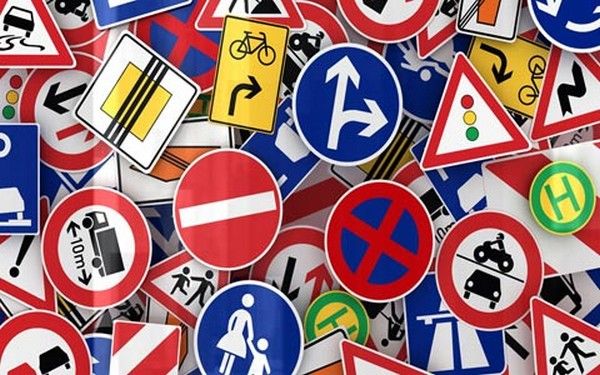The world is full of signs directing people and providing information to keep everyone safe and moving their desired destination. With so many different signs, though, it can be difficult to keep track of what they all mean or distinguish what a new sign is telling you. Luckily, road signs are all categorized roughly the same way. So if you knows the rules of the system, it can be much easier to decipher the meaning of a new message or icon.
Colors
For road signs, parking signs, and any sign you see while in your car, there are some basic rules about what colors are used on them. Red is used to signify a stop or a potential stop. Think of your stop, yield, and prohibited signs as examples, aside from the red light at traffic stops. Yellow is used to indicate warning messages, such as a lane ending, a road merging, or a side road connecting to a major road. These can also warn people about railroad crossings, animal crossings, or upcoming traffic lights. Orange signs indicate road construction and can contain any type of message such as “men working” or “road closure.” Brown is reserved for outdoor recreation; you may have noticed most state parks or campsites usually have brown signs along the road leading up to them to help you find the location. White backgrounds mean the sign is showing you some type of regulation, like “no U turns” or “no left turn.” Finally, if you’ve noticed while driving on a highway or interstate, there are occasionally blue signs. These indicate services available to drivers like DOTD radio stations if they want to make sure there’s no wreck ahead of them.
Shapes
The shape of a sign can also tell you a lot about its information. For example, traffic rules are always printed on rectangular signs with the longer end being the vertical one. Stop signs are always an octagon and yield signs are always a triangle, just like diamonds show road hazards and pentagons indicate school zones. Circular signs are saved for railway crossing warnings and rectangular signs with the horizontal side longer provide navigation information. Additionally, square signs also notify people of services such as highway emergency phone locations, or recreation areas such as campgrounds and rest stops on interstates.
Knowing the basic rules of road and parking signs can help you better understand and decipher what the rules of an area are.

